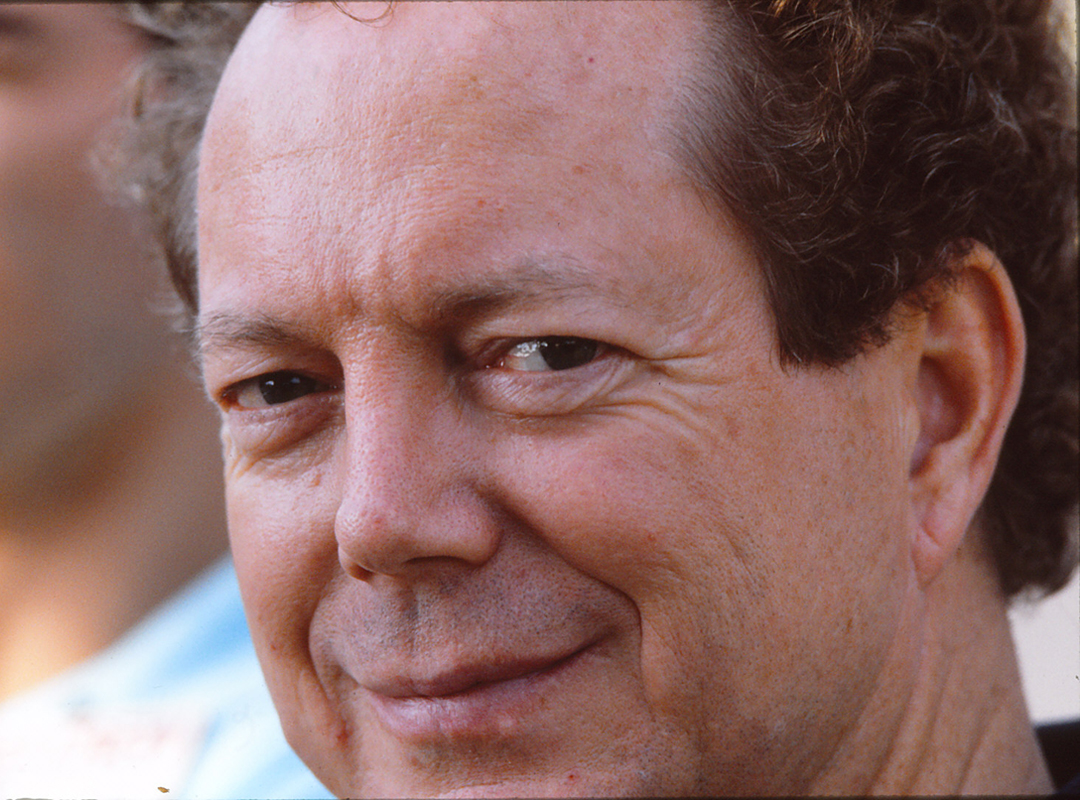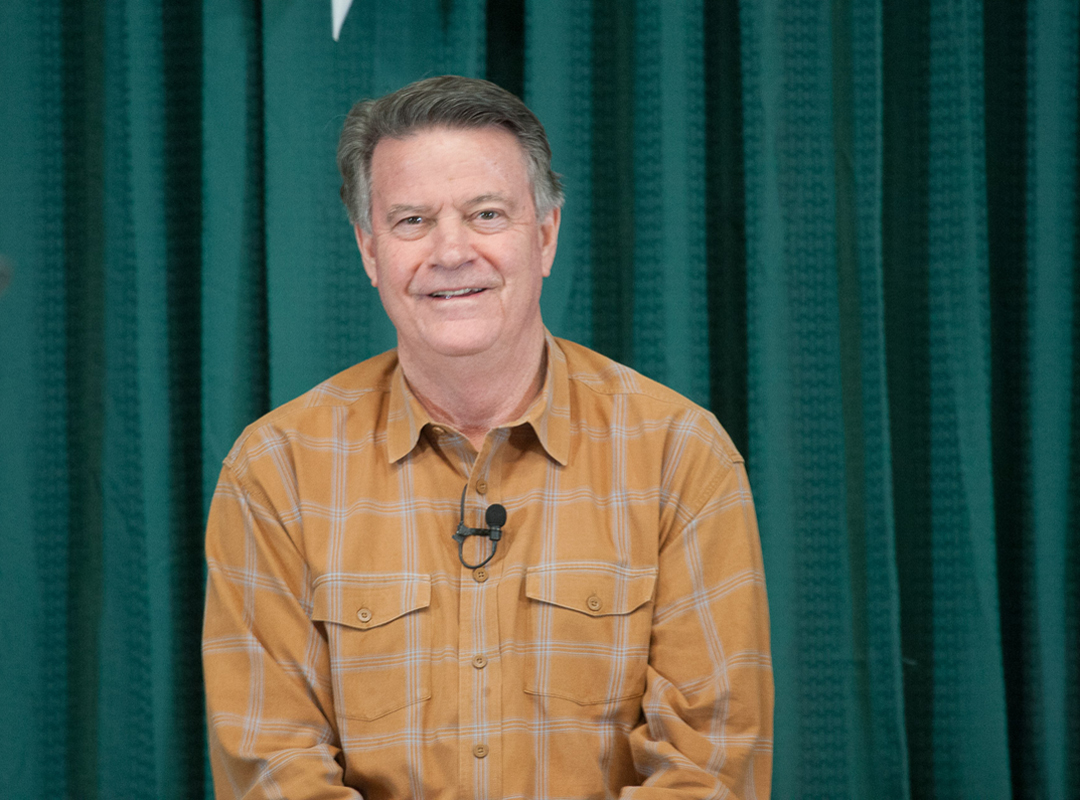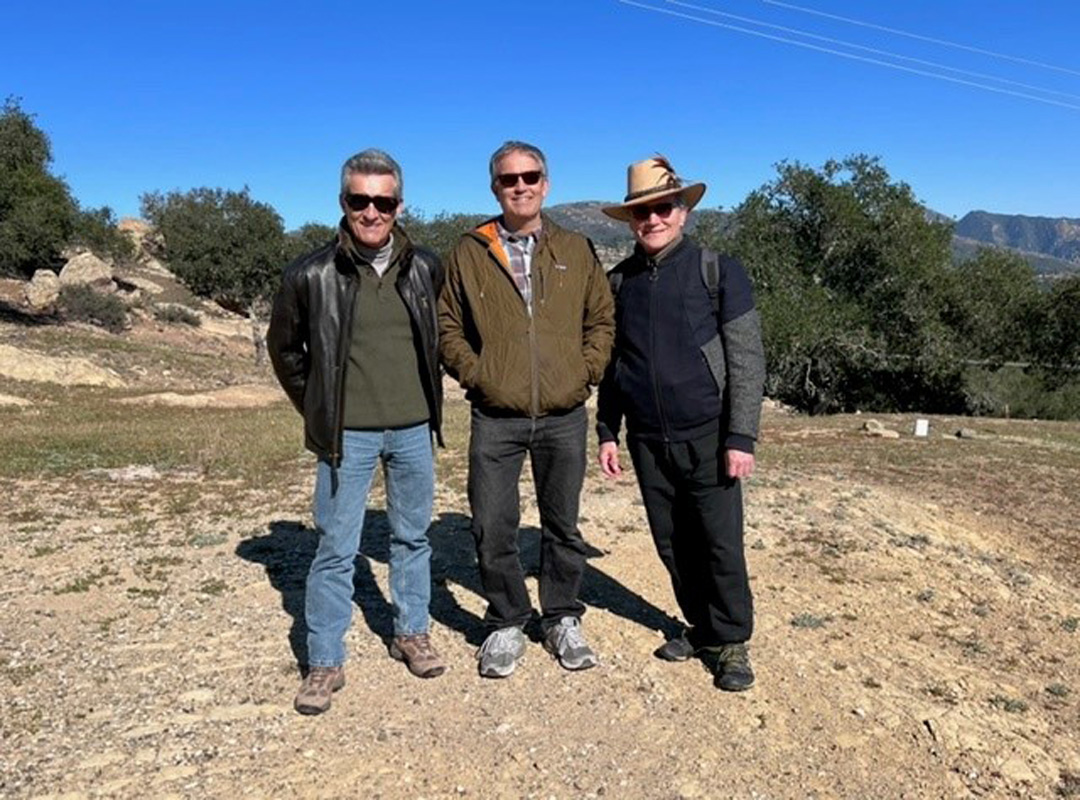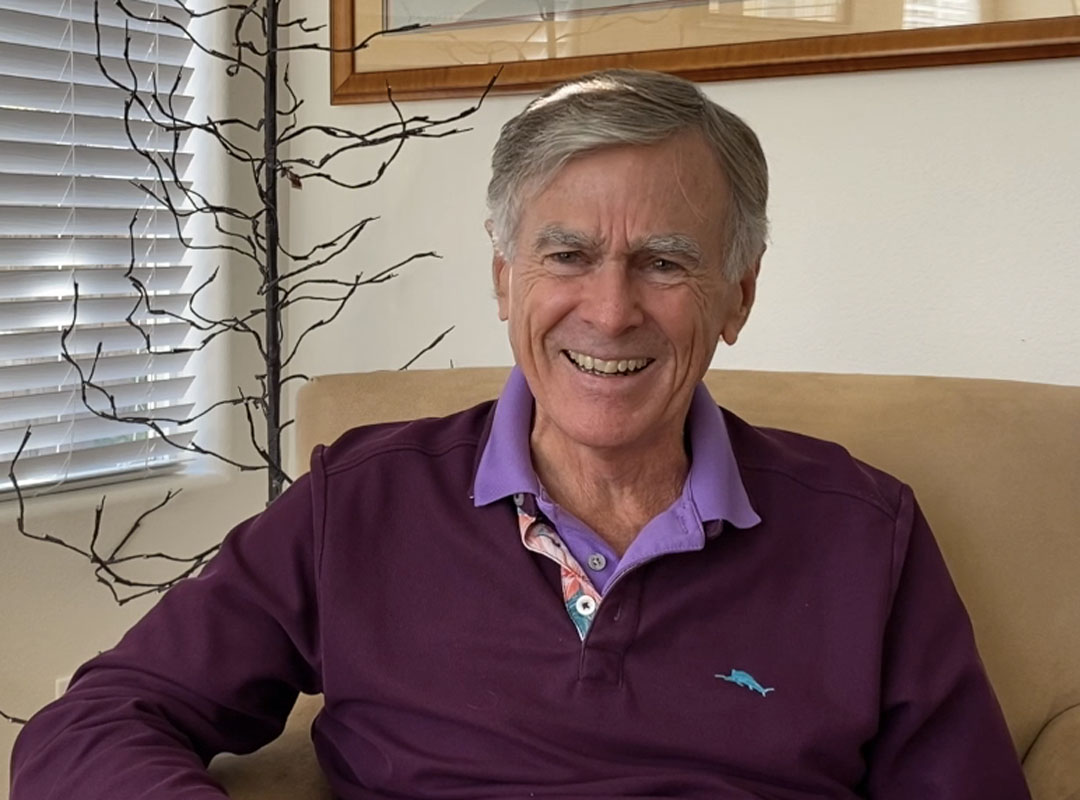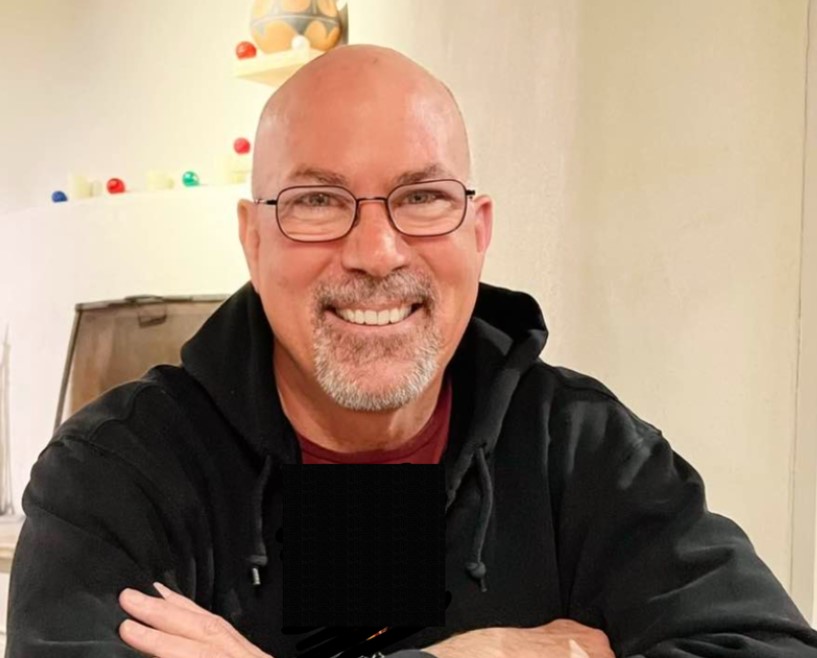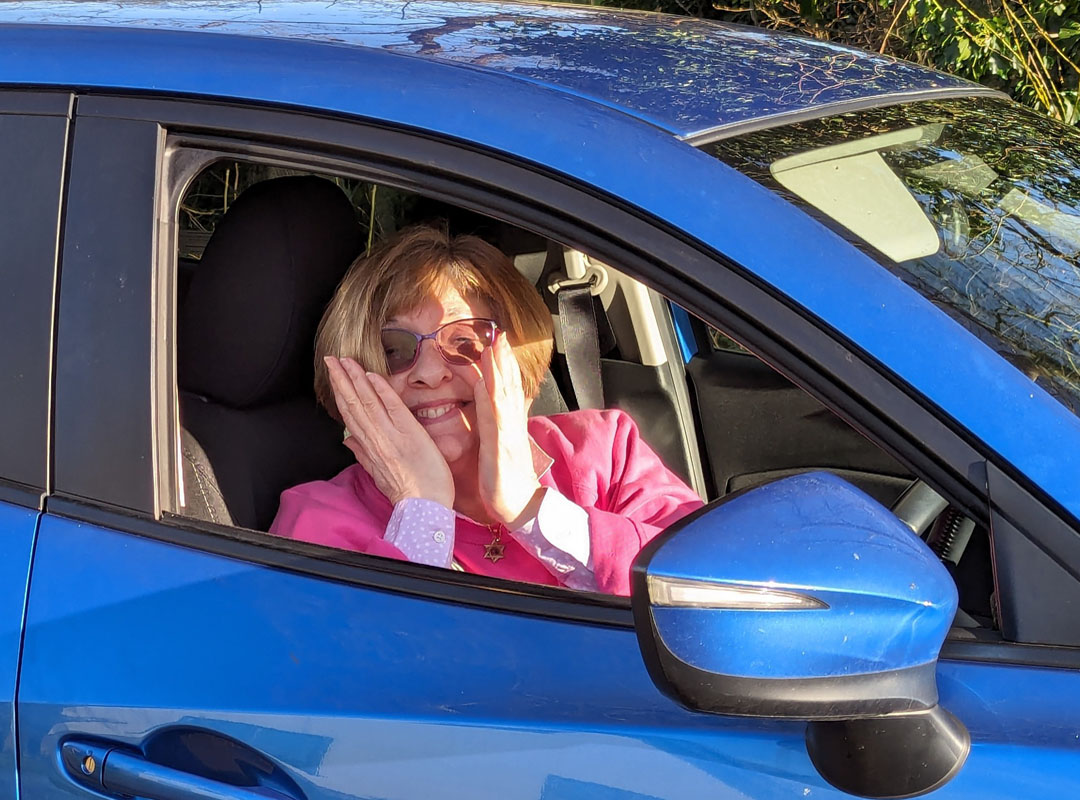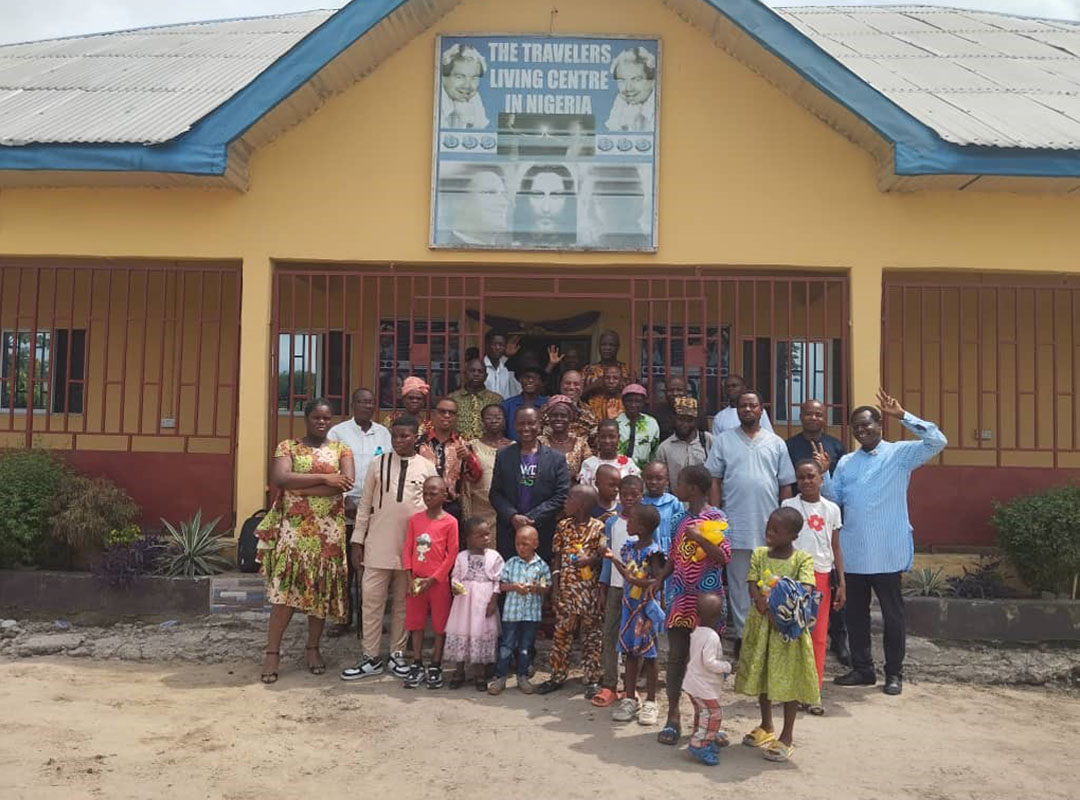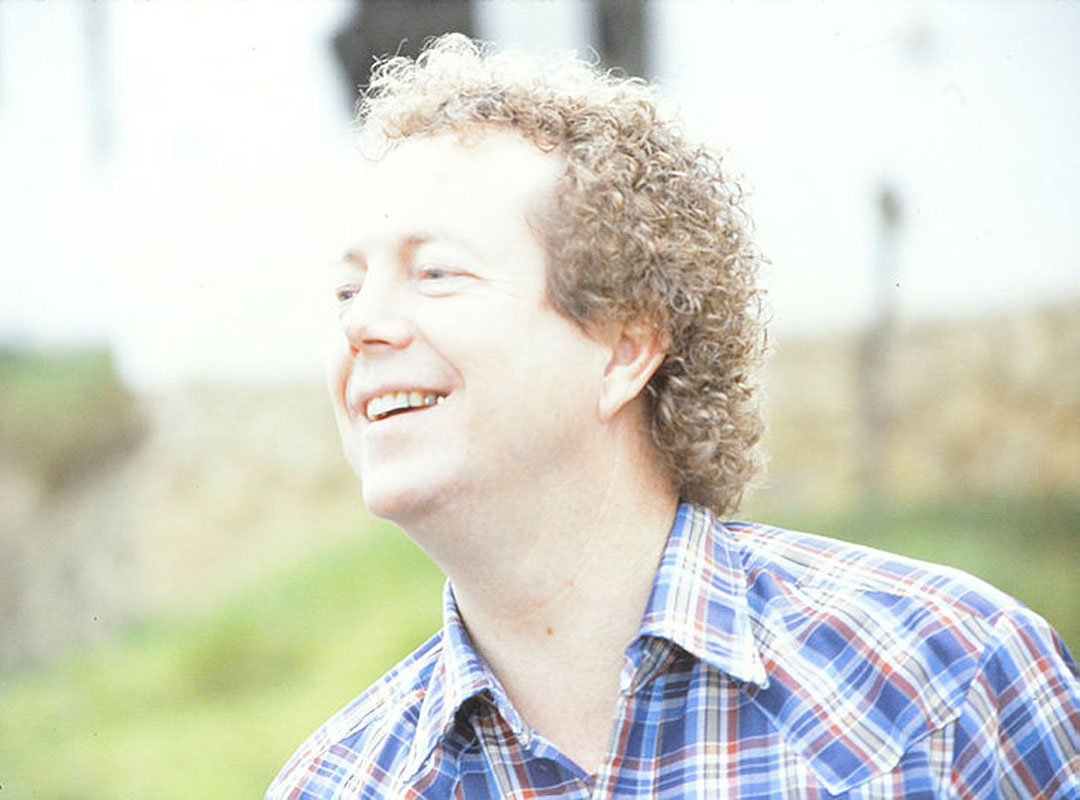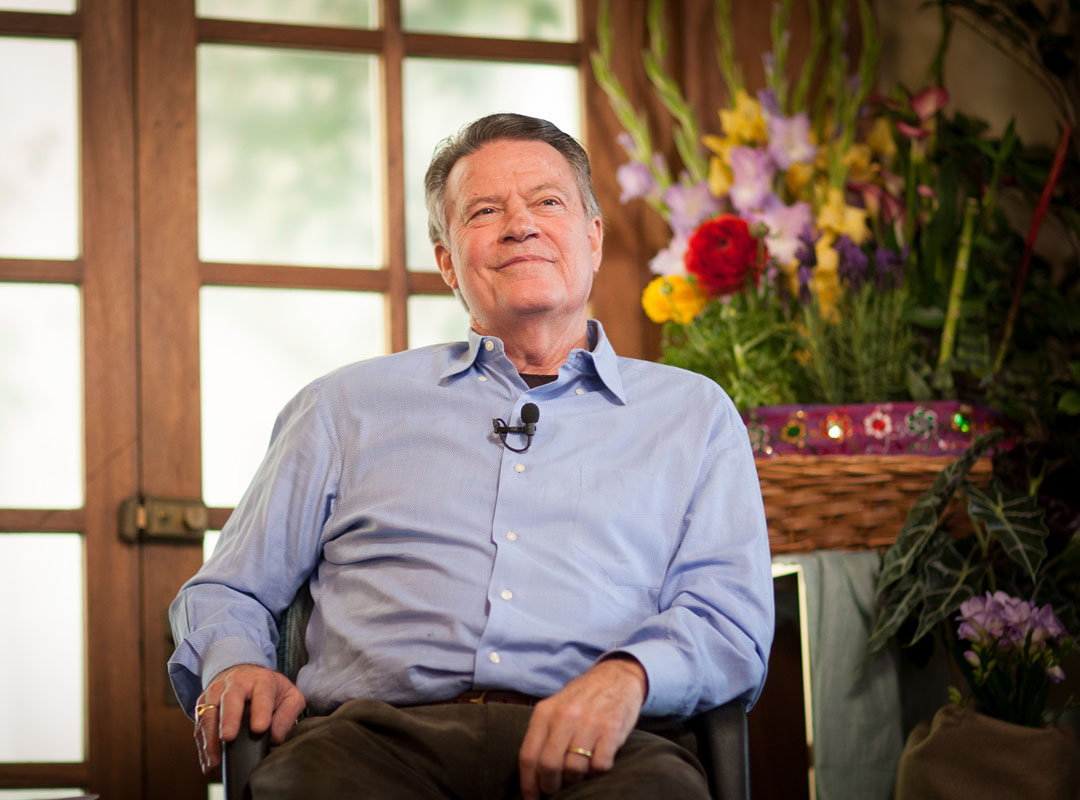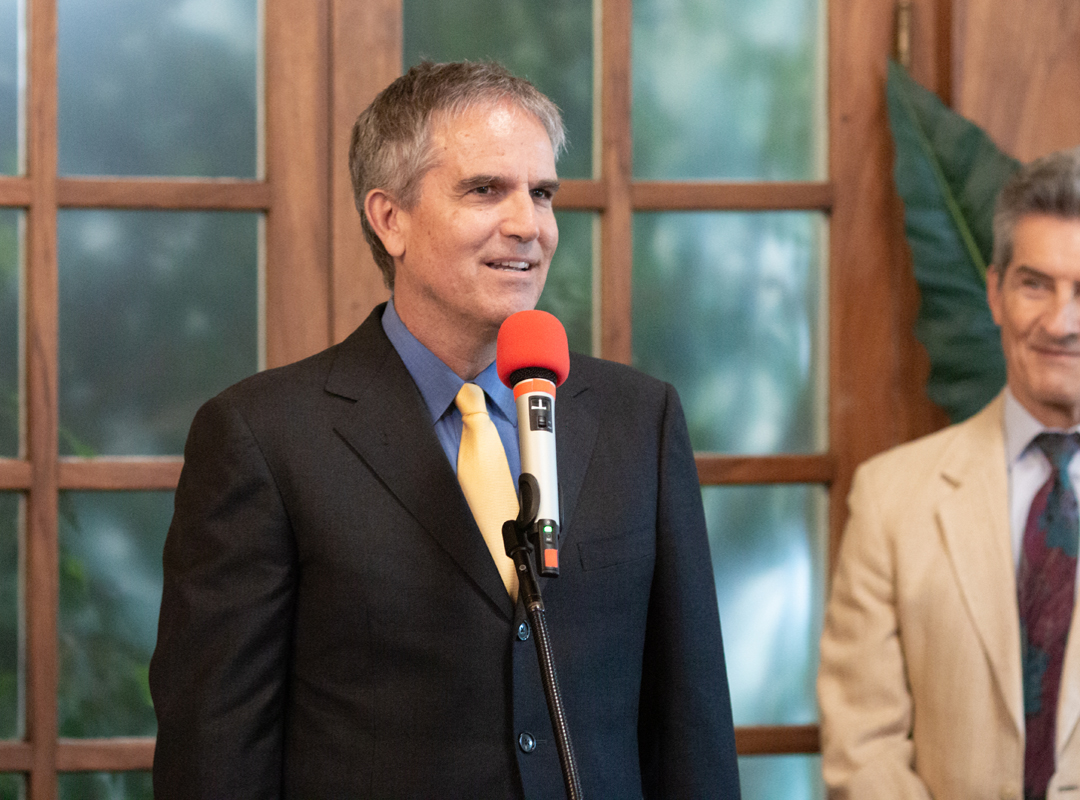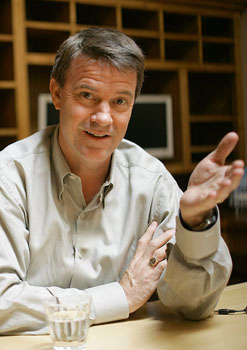 Click here to view the photos taken by John Morton during his travels in Thailand.
Click here to view the photos taken by John Morton during his travels in Thailand.
MSIA’s Spiritual Director, John Morton, was in Thailand at the end of February and early March, 2005. In this interview, John shares with us his experiences while in Phuket, Bangkok and Chang Mai.
NDH: What prompted you to go to Thailand?
JM: I got an invitation from Reverend Brian Cutchell. When he extended the invitation I looked to see if I could do that with my schedule. He wanted to go down to Phuket for himself too and was interested if I would join him. And then I also found that this special fare was available so it allowed me to do a couple stopovers in Bangkok and Phuket, and one in Chang Mai where we’re going to be going for the first stop for our upcoming PTS Thailand and Laos trip.
NDH: You’re going to both Thailand and Laos in 2006.
JM: Yep, January/February 2006. I hadn’t been to Chang Mai before and it’s full of Buddhist temples. My kind of place, like every other block there’s another temple. It kind of reminded me of Japan, particularly Kyoto. And, obviously part of the reason was to do some Light work, just to go stand in the country with whatever Light could come along.
NDH: When getting off the plane and arriving was there any feeling or anything that impressed you?
JM: Yes, how awake I was on such little sleep, that impressed me (laughs). One of the things about the Light is that I always experience that consciousness and energy as uplifting, bright, clear. It has a way of revealing the beauty in people and things. So, when I got there I just had a sense of being uplifted. But I know that can be the Light action, how it just effects me anywhere. If I was in a solitary confinement jail cell, that would somehow appear beautiful in the Light. But, I was just looking to see if I saw anything in the way of oppression, suppression, depression, things like that which I would associate with something that was traumatic and disastrous. I didn’t experience that, I didn’t experience the sense of anxiety or tension. I just wasn’t aware of any of that. I was aware that it was a beautiful morning. I got there on an overnight flight so it was very early morning. On the way down to Phuket, looking out the window, I was struck by how beautiful the countryside is. It reminded me a whole lot of Guilin in China the way the mountains are like sugarloaves, very rounded, beautiful.
When we got into the car with our driver, Brian was with me at this point, the driver mentioned that he had lost his 3 year old niece and that kind of brought it home that this (tsunami) was an event that affected I’m sure a lot of people either very directly, personally, or through somebody they know. On the way to our hotel, which is at the opposite end of the island, we were talking about the effects of the event on people. I think most of it was just the sense of the unpreparedness for it, not really knowing how to handle something like that, not really knowing what it was and it was over rather suddenly. Then they were dealing with these big effects.
NDH: Sounds like your impression was that the people were handling it really well.
JM: Yes, we had to kind of ask about it, but if I was going on what I was seeing, at the airport right near the ocean, I saw some piles of debris and I concluded that’s probably from the tsunami occurrence, but I didn’t verify it. As we were driving we weren’t going to all the areas but what I saw was just lots of reconstruction.
NDH: Already?
JM: Yes and very little in the way of “there’s where it hit.” I was struck by how much construction was everywhere, and it occurred to me that they’d done a tremendous amount of clean up at this point and are well into the process of reconstruction, restoration. That energy of rebuilding is uplifting, it’s creative, it’s restorative, regenerative, positive. I didn’t run into a sense of “leave me alone I need to deal with what happened,” or “you’re imposing by being here, I’m not ready for you to come here.” It was obvious to me that they were very much ready and wanting people to come back, and I kept hearing or seeing the message of “Do you want to help? Come visit.” They have a very large tourist part of their economy. So, I was very willing, as was Brian, to be a visitor, and be accommodated, and that was a very pleasant experience.
The hotel where we were in Phuket is on an inlet bay and they call it a yacht club, Phuket Yacht Club. It’s a bay that’s sheltered enough so that sailboats can moor there. The hotel itself is built up onto the hillside, high enough so that only the parking lot was affected. That was striking because the parking lot was about 20 feet above sea level. They said several cars that were parked there were floating for a few minutes and moved — that the water picked the cars up and moved them. They had a generator that was below the water surge level so they weren’t at full power for a few days, but otherwise they had remained open.
NDH: Is Phuket a poor area, a wealthy area or?
JM: Well I think because it’s a resort, a very popular international resort as the news made known, there were a lot of people visiting there. Obviously there’s a lot of work when there are a lot of visitors on the island. Brian told me that the average wage of a Thai is around two to three hundred dollars a month. You know, the hotels often get that much a day for a room. So, money goes somewhere. But obviously it’s a relative situation of what we consider the necessary amount of living expense and what it really is for someone in that region. It’s different. If people have food, clothing, shelter, you know those tend to be the essential things, that’s what I was struck by. So, humble abodes, if you will, but I didn’t see anything that I would say “that’s poverty.” If it exists, I wasn’t aware of it.
NDH: Did you have any hands on kind of service opportunities or anything like that?
JM: We looked, and I told Brian that my agenda was to plug in if there was an opportunity to in some way help. What he arranged through his contacts was to meet with a local government agent who had a responsibility to administer national services, government services. It turned out that there was a place where local people could come and ask for help, financial help. And apparently a lot of that had already been going on where people would come in and present their case. And, it could be anything. It could be the wage earner in the household was lost. It could be property loss of some kind. Someone gave me a substantial amount of money to give away while I was there and asked me to find someone particular in a personal, more like a direct way, like directly hand over the donation. And what I decided to do was match it. So that was the fun part — who am I going to give this money to? And, I actually saw somebody come in who I thought well, maybe this is the person. Brian speaks Thai so he went up to one of the clerks and said “Can you tell me why that person is here?” He found out that the person was a pawn broker and he was presenting his case for his losses. I decided that wasn’t the one.
The government agent that we met with mentioned that very nearby there was a school that had been severely damaged. There was a large donation from somebody in Czechoslovakia to help rebuild the school, but right next to the school was a temple and he’d heard they needed help with their rebuilding. That just struck me as “let’s go check that out,” so we did. We went over, initially found the school, and then they directed us nearby to the temple. We walked in and met with a Buddhist monk who was in his orange garb with a shaved head, kind of the classic look. On the walls on one side they had a number of photos of the devastation, so that was quite striking, to say the least, because it was raw. I passed by one of the photos and what I realized when I passed by is that some part of me caught something that I didn’t catch, because it just looked like an eight by ten photo of water and debris, like a whole bunch of debris. And then I was looking at these other photos and I went back and looked at the photo again and I saw probably 20 bodies in the middle of the debris, just floating with all of the garbage and whatever else had gotten stirred up by the wave. That’s one of those things when you look at it you realize “Oh, that must have been quite powerful.” Whatever I imagined — I thought maybe it was an occasional person — but to see in a relatively small area of devastation that there were 20 bodies one after the other, then I got a sense that whatever it was that happened was quite powerful and intense so that it took, in some cases, a lot of people all at once.
On the other wall were their architectural plans and they were brand new. The monks were quite excited and what I got out of it is that they’d actually had these plans for quite some time, you know as a someday maybe, but because of the effects of the Tsunami, now the someday was on them and it was either rebuild or give it up. So they were in the process of not only rebuilding the temple but they wanted to create what I would call a monastery — it’s not in the mountains but it’s near the coast — a place of residence for several monks who would be with that temple. They were involved with the nearby school as a kind of a Buddhist school. As the monk explained to me, they wanted to teach young people the right kind of values when they were growing up, about being kind and considerate, respectful. It wasn’t clear to me whether there was a government school available to this neighborhood or perhaps this was the school, that the monks in some way were the instructors and the people that managed and administered the school. So, I realized in a short amount of time that this was the place where I wanted to give the donation, and I told him that. I pulled out a large amount of cash, about an inch worth of cash in an envelope, and handed it to him and obviously he was very appreciative, and started introducing me to his philosophy and his teacher. He showed me a picture of, I think he had a name for him like “the Big Guy” or something like that, it was some name that didn’t sound too official but I got the point. He was talking to me about their form of meditation, and I told him a little about our form of meditation and that we were just glad that we could in some way contribute at their time of need. And he said, “I would like you to come back.” And I said, “I would like to come back.” So, I’m making plans for a brief pre-trip, in fact I’m going to talk to Steve Beimel and Vincent Dupont about my ideas of what we could do just prior to the main trip next January. I feel like I’m a little bit of a MacArthur, you know “I shall return.”
NDH: (laughing) To check on the progress.
JM: Yeah. I remember from our PAT IV trips when we were in Luxor, Egypt, we invited the group as part of the trip to do a community service activity spontaneously that the group created, so we didn’t assign it to them. Part of the group chose to go to a small village. I think initially the villagers said that they would like to have a school, they didn’t have a school in their village. The group said “well, how much does a school cost?” It was something like $10,000 and it just seemed like such a reasonable amount of money. They actually raised it within the group and gave a donation. Then next year when we went on the next PAT IV trip, some of the group that was there the previous year went over and visited the village, and there was a school that was built. That was really exciting for the group to realize that it made not just a difference, but a complete difference. Then they asked, “well, is there anything else?” And they said “we’d like to have a mosque.” They said, “how much does a mosque cost?” “About the same.” So they raised another sum to match what they needed. The next year we came back and this time we took the whole group of about 150 of us over to visit and we were welcomed into their new mosque, which was very nice. It kind of puts things on a whole other scale, when you go to a place that is relatively humble and simple in what the standard of living is, and to realize the complexity that we often deal with for permitting and governing bodies, and the expense of things, and the time it takes to move it along can be years. There (in Egypt) with a relatively small group and relatively small amount of money it made a big difference. I’m hoping that by the time we go back next January (to Thailand) that the new temple will be there in some way and that whoever is there with me could join in visiting the new temple.
We went to another hotel that Brian had visited with his family for about ten years, every year, sometimes twice a year, so for him it was like a vacation home. That hotel actually had enough devastation so they were closed and didn’t expect to open for several months. So we just walked that property. I got from Brian that it was a strange experience because he had been there in November, and a month later the whole place is closed down. He had become friends with some of the staff there and he was concerned about them. Of course, he wanted to know how they were, if they’d managed to survive, and he wanted to hear about the rest of the staff. They mentioned that one of the employees, who was working on the beach where people were sunbathing and doing water activities, realized what it was when the water receded — one of the characteristics of a Tsunami is that the water recedes as the surge is building — and so got people off the beach and got them up to some higher ground. The hotel fortunately had a little bit of a slope so that they could get to upper ground. They mentioned that there was actually just one casualty and it was a woman who had a kiosk where she sold things you would want at the beach or outdoors. Just real simple things that people need. She had insisted upon staying with her kiosk. So that was one of those instant lessons of there are times when you just need to let go and move to higher ground and this was one of them.
The other part of the experience that struck me that I’d also seen in observing the news, is how moved people were by the Thai people in particular. Not that other people in other regions that were also effected wouldn’t be very heartfelt and caring. I had heard several accounts of visitors and tourists talking about how moved they were by the response of the locals. You know, when the chips were flying or falling or whatever they were doing, that they demonstrated they cared. They put their bodies on the line, and sometimes even risking their own selves — very much putting aside their own personal concerns about their own families, their own homes and things like that — that they were there to take care of people. I experienced that type caring, that there’s a very welcoming consciousness, a very caring consciousness. I enjoyed that immensely as we not only traveled to Phuket but when we were in Bangkok very briefly and then when we moved up to Chang Mai, where our trip is going to begin (in January 2006). Again we experienced this hospitality in everything that was going on. It’s a very nice way to experience our world and the people in our world, you know, one of the benefits of traveling outside of your home ground.
NDH: Sounds like you really want to go back.
JM: I do. I definitely am looking forward to going back. I’m looking forward to the opportunity to experience other more remote regions of Thailand, and from talking with Steve Beimel who has already visited most of the areas and places that we are going to visit, just knowing what Steve has on hand, I’m very much looking forward to that. And I’m looking forward to going back, period. Just for my own experience. And, obviously, to share that with our group with our spiritual focus.
NDH: It doesn’t sound like you ran into a bunch of negativity or what some people might think you would find when going to Thailand right now.
JM: That’s correct. I mean there were things that moved me, obviously, most of it was, you know, hearing some of the stories. An assistant manager of the hotel where we were staying in Phuket also realized at some point there was this strangeness. Everybody talks about the strangeness, about the water going out and if you’re there and you’re working there day after day and suddenly the water is out much further than you’ve ever seen it, there’s this oddity like, “what is that, what kind of tide is that?” Not really understanding what is going on. She explained that it sort of came through that this was what happens with a tidal wave, that there’s this part of the process where the water recedes. So she started actually running down to the beach and she didn’t make it because by that time there were already something like three waves, which were more like surges. They weren’t the kind of thing where you see this big wave coming. It was more like the water went out and then it just started coming in like you let the water out of something and it just starts coming out. But it’s coming out of the ocean and it’s coming onto the shore and then the next surge, that’s how I heard people commonly describing it. So by the time that she was involved, she caught the surge. Then she ended up hanging onto a tree, fortunately not too far down, but she actually got in it, got into the water, because it had surged enough to catch her. She realized she couldn’t do anything, there was no escaping it. You know, that was another part of it, that it was fast enough, powerful enough that if you were close to it there was no escaping.
NDH: You were telling me a story about a Buddha that you saw…
JM: Oh yeah. In the temple we went to, there’s a large brass heavy Buddha and it was obviously large and heavy enough that it stayed put with the wave. But they showed the water mark and it went up to the nose. You could see the difference. There was a kind of a corrosion from the salt water on the brass. They said they were going to leave it because they wanted to have it kind of be a mark. And, to them, it was obviously rather symbolic that it went up to the higher centers but it stopped right at those centers. You know, you can say, “that’s a coincidence,” but they looked at it as a sign that Buddha said “that’s enough, that’s far enough, up to here.” And it was nice because it was like an anchor point, the Buddha, for them. That Buddha survived and stayed put and they were going to rebuild around the Buddha.
NDH: Is there anything that stands out as a defining moment or defining anecdote or experience that really captures the feeling of what it was like to be there?
JM: The beauty and the serenity is what stands out. Where I was staying was on this beautiful bay with a horseshoe beach, lush, tropical, gorgeous, serene, all of that was intact. That’s part of the reason I would want to go back, it’s just so beautiful. It’s special too. I was trying to explain to Brian. For example I asked about a beautiful plant in the hotel garden and he said, “that’s a bird of paradise.” I said, “well, we have those but we don’t have them like this.” The lushness, the plant to me sings, it sings in its colors and there is a freshness, if you will. I don’t know the words to really describe it other than the brilliance, the boldness, the beauty of the place. It made me understand why this place is so attractive that people are coming from around the world literally to be there, to spend time there. We took one day to go on, they call them sea canoes, you go out and visit these islands that are very vertical but round, to me that makes them kind of unusual. They sort of look like they pop out of the water. There’s a lot of these islands. They have caves that have been eroded from the ocean and the natural tides. You get in these sea canoes and go into these dark caves for a little ways. Then there’s a lagoon on the other side and it’s also vertical. And those are strikingly beautiful, very unusual. I don’t know how many places in the world would have that kind of a natural experience. And you can go scuba diving and just be in that. They said two months ago there had been ten times the number of people that are there now. Of course, what they were saying is that a number of the businesses that are obviously there for the tourists weren’t making it, they were having to close down because they just didn’t have enough business to stay open.
There are tall cliffs with tropical foliage and the birds singing out. And, it’s the kind of experience to me that goes in deep and you register it as a natural beauty, a natural experience, the kind of serenity that is idyllic so that if you’re imagining something very beautiful, natural, and harmonious, it’s the kind of place, well, like that. You know what also struck me was there are parts of the island where you see a shopping center and you see all the things that we can see. You can say “our shopping centers are bigger than that” or “we have five of them for every one you have,” but it’s not about that, that’s not why I was there. It was much more about being in the land and the beauty of the land. And the culture itself, I’m just struck that they have a natural happiness. That would be a way I would describe it, that kind of comes with being in a place where you don’t have to struggle to survive. There’s a lot of natural food. The land just says “here.” Lots of fruits, natural fruits, grow naturally and aplenty so that they’re not importing lots and lots of things. So that’s what really struck me, was the serenity, the beauty. And, of course, in my mind, because of what we see in the news, I’m prepared for devastation and depression and anguish, and you know maybe if I’d gone a few hundred miles south of there to Banda Aceh and Sumatra it would be different. I did get an email from Will Bickerton, who’s a minister and he’s been serving with the Catholic Relief Society in Afghanistan at Kandahar, and his latest assignment is in Sumatra near Banda Aceh. He mentioned that it was tremendous devastation that they were still dealing with. So, that made me aware that it’s probably different still right now in that area, in what they are dealing with and the clean up is ongoing. I think that if we wanted to go and find debris we could find lots of debris still showing that something very powerful happened here.
NDH: I find it very interesting that in John Morton style you found the blessings of where you were and what you were doing there and that’s what you’re talking about here is the blessing of being there.
JM: Yes and I was, let’s say, prepared to have a tough time psychically or something like that. With whatever protection and blessing came with me, which I of course asked for, I experience I got a free ride, if you will. Not that there wasn’t Light work going on, I’m sure there was as there always is in any place we are. But I wasn’t dealing as I have on some occasions in some locations that I’ve been very aware of the negative forces. I was much more aware of the blessing forces, the uplifting forces. And, you know I think that a large part of that is because people have been praying and there has been an overpowering consciousness of empathy. So the outpouring from the world has made a difference. I really consider that I got to walk into so much Light and love that has been sent to that area and I kind of expect that it would be elsewhere, too. But as Will Bickerton pointed out where they are in the process in that area (Banda Aceh) he made it clear that there was still a large amount of clean up that needed to be done just to get to a place of “now what?” “Now that we’ve cleaned up the effects and the mess, what do we do?”
I think one of the lessons of the temple situation in particular is this is an opportunity to make it better than it was — we’re going to have a better temple than we had, we’re going to have a better school, we’re going to have a better house. Because there has been a tremendous outpouring of donations, there really are these opportunities where it’s not just “kind of fix it,” but it’s “make it really good.” Do some things that you’ve wanted to do. Now this is all my speculation, but whatever is going on, that’s what I was seeing. Not only is this restoring, this is making it better. It’s going to be better than it was before the tidal wave. Can you replace human loss and that kind of thing or the effects of having those kinds of experiences? I think that would be something where it takes healing and clearing. But at another level what was going on was obviously beyond what was needed, something greater than what was needed was coming in and that was my sense of it. As they come through this and they come out of it, more people than would have will want to go there. Particularly as people, let’s say, like me, come back and say “oh it was beautiful.”
Of course I had people before I went saying “stay away from the water.” And I did get out into it, so I was in the ocean doing some snorkeling. I had that thought like “well, if it could happen once it could happen again and what are you doing in the ocean if it’s going to happen?” I have a place inside me that just says “Well I’m here to live, I’m here to enjoy this life and I’m just going to trust the whole process. If it’s my time, it’s my time. If I’m listening inwardly I’ll get a message or somehow I’ll be protected and taken care of. This is a beautiful place, why be afraid that that could happen?” For me it was just better to get in the water and enjoy it, even though they said that in that area of the reef, where the tropical fish hang out, a large part of it had just been taken. A body of water hit the reef and took out a large part of it. But I found the part that it hadn’t taken out.
NDH: (laughing) Of course.
JM: So there I was spending time with these beautiful tropical fish that are wonderful to be with. The other thing I experienced too was the appreciation, because I think they understand that there’s still a reluctance, even a fear, to come back. So I think I got the benefit of that, you know, “we’re just glad you’re here, we’re glad you’re willing to come be with us.” When I talked about bringing a group back with me, there was even more appreciation.
NDH: I think you might have a large waiting list for this trip (laughing)…I get the sense that people there really are trained in having a positive attitude. It’s like a training in culture that may have helped them deal with all of that.
JM: That’s a good point. I don’t know the culture well enough to know how they teach their children, but I did experience that there’s a large dose of happy in the culture. Brian was saying that smiling is part of the way of expressing even if they’re upset. They know how to smile and that’s one of the things that throws people off, is a person still smiling and they’re really upset. Why would you be smiling if you’re upset? But there’s this attitude to smile or see the good or something, whatever that represents, there seems to be a good dose of it in the culture. And I really did enjoy just being around the people that were there serving meals and taking us around in various ways. A very pleasant and enjoyable experience all the way through.
We also went and visited Brian’s factory and I had an opportunity to do a blessing on his new daughter. And a blessing at their factory. I was doing that kind of quietly, because there are lots of ways to do a blessing. Then, as we were about to leave in our car in the parking lot, the office staff came out and Brian let me know that they were wanting to know when’s the blessing, “we want to do the blessing.” And so we joined up in a circle there in the parking lot and did another blessing together. It’s a real nice experience when you take time and you join up with people you’re just meeting, and people you’re just meeting again from whenever we met before, and having the experience of the uniting and goodness that goes into being willing to say a prayer and ask for God’s Light to visit us and be placed into the land, into the earth, and do whatever can be done in grace. It was kind of the culmination of the trip, going to that factory and going to Brian’s home and doing the blessing in the factory and the blessing at home with the new daughter.
NDH: So the plane’s taking off, you’re in the plane, any feelings, any impressions as you’re leaving?
JM: Well, I would say it was a deep feeling of satisfaction, very pleasant and also whatever it is that would bring me back, having a good sense that I’d like to come back. I want to come back and visit my new friends and share it. I would love that opportunity to share what’s there and also bring what we bring as a consciousness of Light and a focus of peace. It’s one thing to tell people about it, but it’s another process to bring our group and, having had that experience many times in many places with different cultures, I’m looking forward to what it’s going to be in this part of the world.
NDH: Anything else John?
JM: I’m just reminded that I did go there last year, at my own invitation I was in Bangkok. Travelers are change agents and I don’t necessarily get to see and be conscious about what’s going to happen, but I often know that something’s going to happen when the Travelers step foot into any land. It’s not quite the same but we’ve done trips where we’ve come back several times as we have with Israel and Egypt, Greece, and we’ve brought groups many times, as we did in Japan. Who knows, maybe in this part of the world we’re starting another process where we go more than once. Especially if there is a waiting list.
NDH: (laughing) I think you’re going to have a waiting list.
JM: And the word will get out I’m sure.
NDH: Yes, shortly (laughing).
JM: All right.
NDH: Thanks a lot.
For more information on the upcoming trip to Thailand & Laos in 2006 offered through Peace Theological Seminary & College of Philosophy and Esprit Travel, click here.







